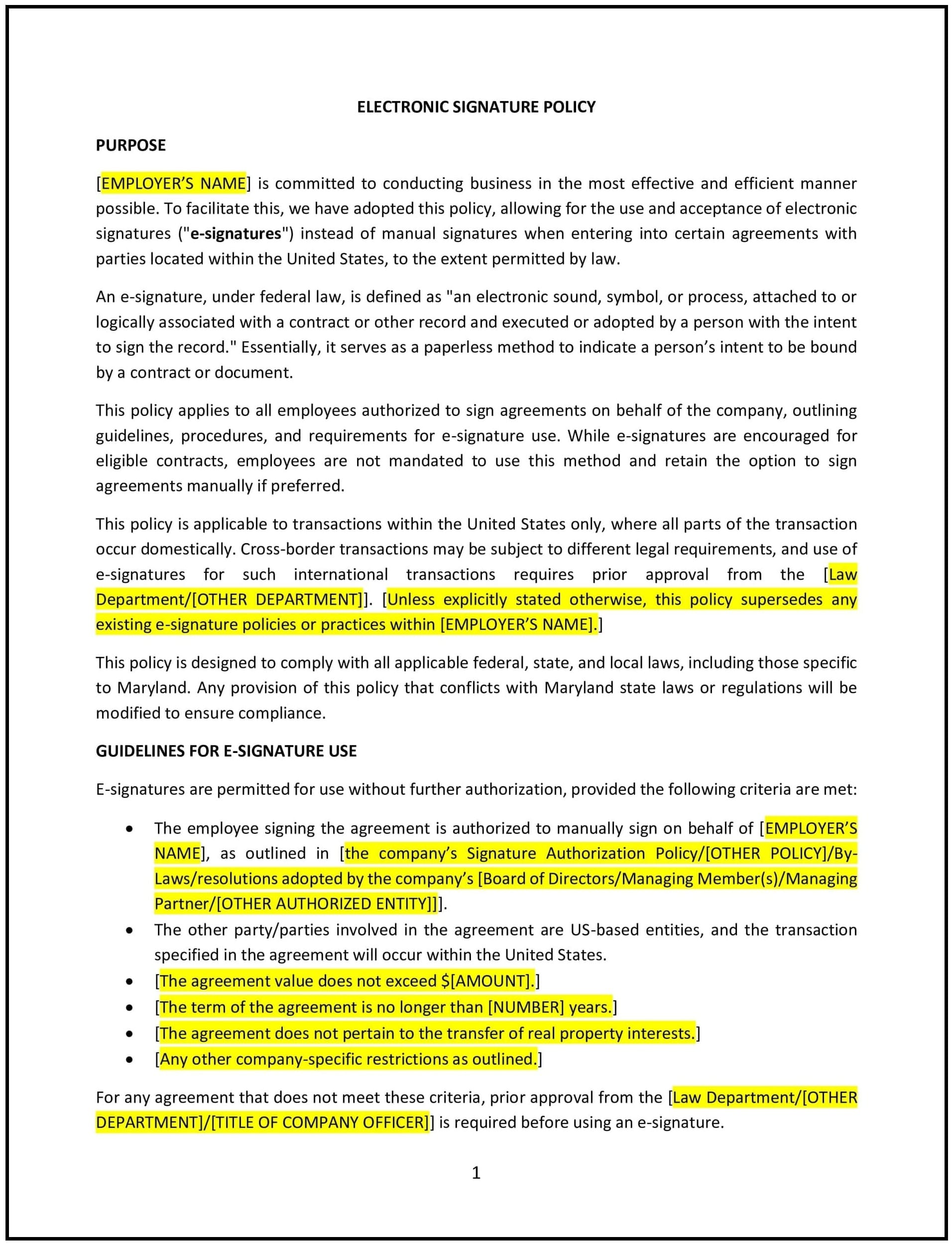Electronic signature policy (Maryland): Free template
Got contracts to review? While you're here for policies, let Cobrief make contract review effortless—start your free review now.

Customize this template for free
Electronic signature policy (Maryland)
This electronic signature policy is designed to help Maryland businesses establish guidelines for using electronic signatures to execute agreements and transactions. It outlines the circumstances under which electronic signatures are acceptable, the methods for ensuring security, and the legal requirements that govern their use.
By adopting this policy, Maryland businesses can streamline processes, enhance efficiency, and ensure that electronic signatures are used responsibly.
How to use this electronic signature policy (Maryland)
- Define electronic signatures: Clearly specify what constitutes an electronic signature, such as typed names, digital signatures, or scanned handwritten signatures.
- Identify acceptable uses: Outline the types of documents and transactions that can be executed using electronic signatures, such as contracts, agreements, and forms.
- Establish security protocols: Specify methods to verify the identity of signers and ensure the integrity of electronically signed documents.
- Address consent requirements: Require parties to provide consent to use electronic signatures before executing agreements.
- Maintain records: Detail how electronically signed documents will be stored, accessed, and retrieved to meet legal and operational needs.
- Include exceptions: Highlight documents that must still be signed in ink, such as those excluded by Maryland law.
- Reflect Maryland-specific laws: Incorporate Maryland’s adoption of the Uniform Electronic Transactions Act (UETA) and other relevant state laws.
Benefits of using this electronic signature policy (Maryland)
Implementing this policy provides Maryland businesses with several advantages:
- Increases efficiency: Speeds up transactions by eliminating the need for physical signatures.
- Reduces costs: Minimizes expenses related to printing, mailing, and storing physical documents.
- Enhances security: Establishes protocols for verifying identities and protecting signed documents.
- Promotes sustainability: Reduces paper usage and supports environmentally friendly practices.
- Aligns with legal standards: Reflects Maryland’s legal framework for electronic transactions.
Tips for using this electronic signature policy (Maryland)
- Train employees: Educate team members on how to use electronic signature tools and follow the policy guidelines.
- Use secure platforms: Implement trusted electronic signature solutions that offer encryption and authentication features.
- Communicate clearly: Ensure all parties understand their rights and obligations when using electronic signatures.
- Monitor usage: Regularly review how electronic signatures are being applied and address any issues.
- Stay updated: Reflect changes in Maryland laws or technology advancements in the policy.